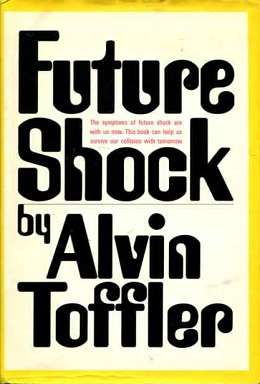So, I was invited to India to lead a workshop on general semantics and media ecology at the new Balvant Parekh Centre for General Semantics and Other Human Sciences, in Baroda. Prior to the workshop, I was asked to provide a write-up, which I did. For a while now, I had been thinking of a way to designate the common ground between general semantics and media ecology, and came up with a term that might represent a new synthesis. Although I am not entirely satisfied with it, and a google search later revealed that others have been using the phrase (not that anyone owns it, and I make no attempt to connect this to any prior usage), I went with Ecology of Knowledge, and here is the description I provided for the workshop:
Towards An Ecology of Knowledge
Lance Strate
Executive Director, Institute of General Semantics
Professor of Communication and Media Studies, Fordham University
The purpose of this workshop is to introduce the allied disciplines of general semantics and media ecology as the basis for an ecology of knowledge. Some of the most fundamental questions that anyone can ask might include the following: What does it mean to be human? What is the nature of the world that we find ourselves living within? And how are we to live our lives, effectively and harmoniously, in relation to other human beings, and to our world? These questions all revolve around the concept of knowledge, which is to say that they are concerned with the relationship of the knower to the known, with how we know our environments and ourselves, how that knowledge guides our actions, and how we might expand and improve on the process of knowing. Alfred Korzybski developed general semantics as a form of applied epistemology, a pragmatic system focusing on our ways of knowing, and how they influence our thought and behavior. Korzybski describes the discipline of general semantics as focusing on the "organism-as-a-whole-in-its-environment." By organism-as-a-whole, he indicated that he wanted to bring an holistic approach to bear on the study of human beings, and by situating the human organism in-its-environment, he indicated that he wanted to understand human beings through a contextualized and ecological approach. Korzybski emphasizes the role of perception, language, symbolic communication, and scientific method in shaping consciousness and culture, and we will also consider related concepts such as linguistic relativism, philosophy of symbolic form, and metaphor. Media ecology, which Neil Postman described as "general semantics writ large," contributes an additional emphasis on how modes of perception and communication, and forms of media and technology affect the way we think, feel, and act, individually and collectively, and in this workshop we will explore the thought of media ecologists such as Postman, Marshall McLuhan, and Walter Ong as well.
The workshop received some advanced publicity in the Times of India, in the following article: Centre to tickle scholarly tastebuds (and in case you're wondering, Vadodara is the new, domestic name for Baroda, like Mumbai is for Bombay; I only used Baroda here because that is what the Centre uses in its literature, and that's also what the airlines used).
Now, here are some photographs from the workshop. These first are from the opening:
Now, here are some photographs from the workshop. These first are from the opening:
And here is a shot of me with the Director of the Centre, Prafulla Kar, after I opened up the package containing the Centre's first newsletter:
Now, some views of the audience:
These shots were all taken in their lecture room, and here now is a photo of the seminar room:
And a shot of me leading the workshop on the second day:
And on the third day, I also gave a public lecture, "Eight Bits About the Digital Media Environment" (for an earlier version of the talk, click here):
And some shots of me from the final day of the workshop:
And a shot of me with three of the participants, including my good friend Devkumar Trivedi on the left:
Most of the participants were English professors and graduate students, so I was able to work with them on an appropriately academic level (although we did mix it up a little on the subject of Derrida).
And finally, here's a link to A Report on The First National Workshop "Towards An Ecology of Knowledge" 28-32 October, 2009. This was published on the official website of the Balvant Parekh Centre for General Semantics and Other Human Sciences. The report is not entirely accurate, but it will give you an idea of what went on, and if you take a look at the rest of the Centre's website, you'll find that it's an eclectic and highly intellectual institution. All in all, I had a marvelous time leading the workshop, was very impressed with the high level of discourse on the part of the participants, enjoyed the other public lectures and panel discussions, and the papers presented by the participants. It was truly a four-day ecology of knowledge, and I myself learned a great deal from the experience. A special thanks to Balvant Parekh for making it all possible!























